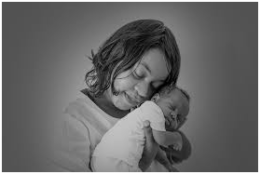There are many issues that plague us as far as women and children’s mental health is concerned. However, as paediatricians, an area that many of us are starting to deal with more often is postpartum depression. More mothers are coming in to our offices looking dishevelled while some might try to hide their feelings as much as they can until they feel safe enough to express themselves. They express thoughts that seem disconnected, they are extremely tearful and overwhelmed beyond what is typical for postpartum mothers. Their babies are often also stressed as a result.
Postpartum depression is a common problem for women after having a baby. In fact, it is so common that the American College of Gynecology has several questionnaire screening tools your OB/GYN will implement after you deliver and during follow ups. There are even tools that can be accessed via the web for concerned family members or partners seeing signs of depression in a mother. These standardized screening questions are a wonderful way for your provider and family to understand how much this pregnancy has affected you emotionally. It is hard sometimes for mothers to open up about their emotions or to even recognize the level at which they are affected by thoughts of sadness and depression after the arrival of a new baby.
As mothers, we spend months anticipating the arrival of this beautiful baby, imagining each finger and the colour of their eyes, the way they smell and look. It’s terrifying and disturbing for many mothers to note that the excitement may result in sadness. They feel guilty, they feel inadequate and ashamed. They are sometimes afraid to articulate this sadness or are feeling isolated in a world that expects all mothers to be celebrating new life. So many mothers suffer postpartum depression in silence.
A mother who is fatigued may not realize the extent to which her thoughts of sadness and depression are beyond what is normal as hormonal changes occur postpartum. In this state of fatigue, she can confuse her thoughts for exhaustion; poor judgement is explained by lack of sleep. Differentiating between what is normal postpartum blues and true depression may be difficult. The baby blues or postpartum blues generally happen within the first 2 weeks after delivery. These blues are mild, don’t require medication, and do not significantly impact daily functioning. The blues may include tearful moments, appetite problems, trouble sleeping, feeling overwhelmed, reduced concentration, and anxiety. All of these things can easily be attributed to the life of a tired new mom adjusting to a baby. Babies have challenging sleep-wake cycles and need to feed constantly which contributes to all the symptoms mentioned. However, the clear difference is that with the blues, things get better, on their own fairly quickly, and there isn’t an upheaval caused by this adjustment period.
Postpartum depression is more severe. It usually starts 3 weeks after delivery but can begin at any time in that first year after having your baby. Unlike the blues it will not self-resolve, it does not get better without medical intervention or therapy. The feelings and thoughts that describe depression are extremely disruptive to daily life and functioning, affect personal relationships and can result in risk or harm to the baby or mother. We have all seen news headlines of children that have been harmed or abandoned by a new mother in those early months of infancy. Depression and on the more severe end, postpartum psychosis can play a role in this. Often, mothers who have a pre-existing history of mental health problems are at greater risk for postpartum depression but, it can happen to any woman.
Our role as family members, friends, and paediatricians is to help mothers with newborns recognize they need help, and then take the action steps to get help. Part of the passion for building a tribe of motherhood and normalizing conversation about parenting stress is it creates an emotional environment where mothers can speak their truth. They don’t need to exist in a bubble where everyone else is perfect and they feel alone and unfit. The criticism and judgement that occurs with mom shaming create a fertile ground for motherhood isolation. However, if we live in a pretend world, we risk great damage to mothers and their children. How can we really make the stigma of postpartum depression go away so mothers can freely get the help they need?
There is a lot to celebrate about motherhood, but mothers who are hurting need a safe space to heal and grow. As we raise awareness, let us all take the next steps. Reach out to a woman you are concerned about, pick up the phone and call to check in, drop by with some food for her, meet up for coffee. It might be the lifeline or intervention she needs. As paediatricians, when we ask about your emotional well-being mothers, we are not judging you. Please remember, we are also here to help. We want to help you succeed and be well as a mother.




